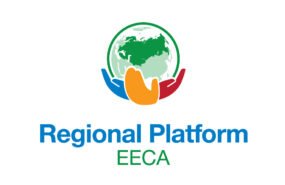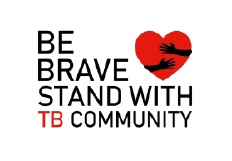Contribute to the Strategy of the Community Delegation to the Board of the Global Fund
- 06.02.2017 06:52
- Post Views: 1,138
Are you a civil society representative from one of the EECA countries? Are you engaged with one of the key populations or work for an NGO implementing related service and programs?
You have the opportunity to contribute to the forming of the Strategy of Communities Delegations of people living with HIV and affected by tuberculosis and malaria (Communities Delegations) in the Board of The Global Fund to Fight AIDS, Tuberculosis and Malaria (Global Fund) for 2017-2022 which will be finalized on Communities Delegation Retreat on 8-11 March 2017 in Skopje, Macedonia.
The mission of the Communities Delegation is to bring the voices and issues of people living with HIV and AIDS, and affected by Tuberculosis and Malaria to the deliberations of the Global Fund Board and its committees, and through this, to ensure greater and sustained impact of the Global Fund at the community level.
Interests of EECA region communities on this retreat will be represented by three people – Aleksandr Kurashov from Moldova who recently left the post of GF Board member from Delegation, and ENPUD members – Anton Basenko and Aleksey Kurmanaevskiy. Anton joined Delegation last year with the support of Regional Platform-EECA. This will be the first retreat for Aleksey, he joined Delegation in January 2017.
Apart from Delegation members, representatives of other civil society delegations are traditionally invited for discussions on certain days of the retreat: Developed Country NGO Deelgation, Developing Country NGO Delegation, and Key Population Network and CS members и Open Society Foundations и Global Fund Secretariat – CRG department.
Communities Delegation Retreat traditionally includes meeting with local communities and discussion of their challenges/barriers/tasks and opportunities within Global fund programs in the country.
Key tasks of the retreat – to finalize the Strategy, to discuss internal mechanisms of interaction within Delegation and to approve operational plans.
Approval of new Strategy and Delegation key priorities will be one of core issues for discussion. Strategy will be developed based on the previous one (2011-2016), taking into consideration recommendations, outlined in the report on Strategic review of Delegation’s work and will be based on 5 strategic directions:

The report, formed as a result of Strategic process of assessment and planning, conducted by an independent consultant in May-June 2016, describes the mechanism of Delegation work, examples of key achievements and analysis of assessment results in the form of 7 strategic messages and 6 recommendations for adjustment of work in 2017-2022 гг.
Strategic messages from Strategic Review
Strategic message 1: The Communities Delegation plays a unique and essential role in the governance and accountability of the Global Fund. It provides a ‘reality check’ – bringing the voices of those living with and affected by the three diseases to the Board’s deliberations and championing communities’ needs, principles and priorities.
Strategic message 2: The Communities Delegation has made a major contribution to critical discussions,
decisions and policies by the Global Fund Board. Within these efforts, it has championed the issues that matter most to communities, such as: human rights; meaningful engagement; community systems strengthening (CSS); eligibility and allocation; sustainability and transition; and funding for Regional Programmes and the Community, Rights and Gender (CRG) Special Initiative.
Strategic message 3: The Communities Delegation has played a central role in ensuring the high profile of communities’ issues within the core frameworks that guide the Global Fund, notably the (new) Funding Model and the Global Fund Strategies for 2012-16 and 2017-22.
Strategic message 4: The Communities Delegation’s Strategic Plan, based on five Strategic Areas, provided a useful framework to plan and report on its work in 2011-16. However, some of the Plan’s wording became outdated, while the document was not widely owned or used by the Delegation as a whole.
Strategic message 5: The Communities Delegation has made important efforts to strengthen its internal processes, such as through the clarification of terms of reference (ToRs) and the development of transparent policies. However, it remains vulnerable – with high dependence on a small number of individuals and with some key procedures requiring further attention.
Strategic message 6: In 2017-22, a strong Communities Delegation will be more important than ever – for keeping the Global Fund global, rights-based and responsive to the real needs of communities. This will require a Delegation that has its own vision and is driven by a clear and prioritised strategic agenda.
Strategic message 7: To fulfil its Strategy for 2017-22, the Communities Delegation will need to be fit for purpose. This will involve implementing its existing internal processes, while further strengthening key areas such as its: representation across the three diseases; active engagement of members in developing positions; and expansion of partnerships beyond the ‘usual suspects’.
The report ends by recommending that, as next steps to inform and develop its work for 2017-22, the
Communities Delegation should:
- Develop a clear and strong Strategic Plan, in line with the timeframe of the Global Fund’s Strategy 2017-22. This should: outline the Communities Delegation’s priorities; include a theory of change; and provide a monitoring and accountability framework. It should be the subject of a review after approx. two years.
- Identify a limited number of strategic priorities for 2017-22 that reflect both: what matters most to communities living with HIV and affected by TB and Malaria; and where the Communities Delegation can, as part of the governance of the Global Fund, bring the greatest influence and added-value.
- To achieve its identified priorities, further develop the Communities Delegation’s strategic partnerships, with attention to both: strengthening the effectiveness of its work with existing key partners (notably other constituencies on the Board of the Global Fund); and exploring new partnerships (to address the changing environment and emerging issues).
- Within its Strategic Plan for 2017-22, be mindful of continuing to achieve an effective balance between external-facing advocacy work and the internal-facing development, sustainability and accountability of the Communities Delegation itself.
- Among the Delegation and with external partners, identify and debate key strategic questions that will shape the future work of the Communities Delegation within the context of the evolving response to the three diseases, health and financing architecture and role of the Global Fund.
- Use the opportunity of developing and publishing the Strategic Plan 2017-22 for a ‘communications drive’ to clearly articulate to key stakeholders: what the Delegation is (and is not); how it works; and what issues it champions.
Till the end of February 2017 you have an opportunity to send your comments/ideas/suggestions/remarks to strategic directions and recommendations on their adjustment for 2017-2022 provided above, and thus to potentially influence work of Communities Delegation in Global Fund Board.
Please, send your ideas with no specific format to the address: info@eecaplatform.org, basenko@aph.org.ua
Best regards,
Regional Platform-EECA Team
Related News
Services for migrants and refugees from Ukraine – HIV/TB care with a focus on key populations
Due to the increasing flows of refugees from Ukraine because of Russia’s invasion of Ukraine, the EECA Regional Platform created a spreadsheet to fill contacts details of face-to-face and online services for refugees and migrants (with a focus on HIV/TB care and key population groups).
Regional Platform – EECA
This web-resource is a part of new regional communication and coordination project “Regional Civil Society and Community Support, Coordination and Communication Platform - EECA”, implemented by Eurasian Harm Reduction Association (EHRA).
Tags
See also
-
EECA’s Regional Platform monthly Newsletter #21, February 2026 26.02.2026 11:56
-
Webinar: Results of the 54th meeting of the Global Fund‘s Board 23.02.2026 10:24
-
EECA’s Regional Platform monthly Newsletter #20, January 2026 27.01.2026 12:58
-
Global Fund Eligibility List 2026 27.01.2026 11:19







